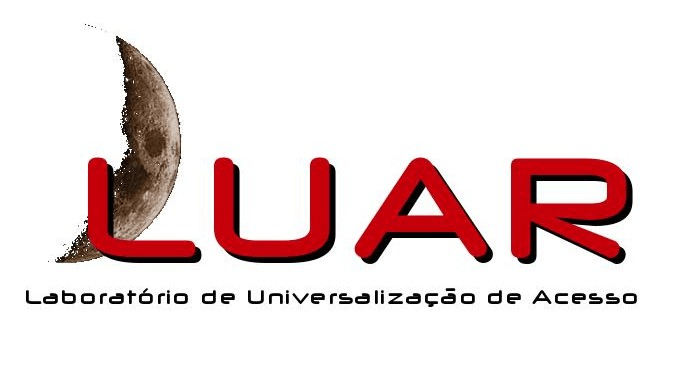Sports nutrition jobs
Positive results have also been seen in elite athletes that consume meat-based proteins, as opposed to vegetarian diets . For example, carnitine is a molecule that transports long-chain fatty acids into mitochondria for oxidation and is found in high amounts in meat https://alimentos-carbohidratos.com. While evidence is lacking to support an increase in fat oxidation with increased carnitine availability, carnitine has been linked to the sparing of muscle glycogen, and decreases in exercise-induced muscle damage . Certainly, more research is needed to support these assertions. Creatine is a naturally occurring compound found mainly in muscle. The concentration of creatine in uncooked chicken and beef is approximately 30 mmol/kg (4–5 g/kg), meaning that one serving of beef contains approximately 0.4 g of creatine . Vegetarians have lower total body creatine stores than omnivores, which demonstrates that regular meat eating has a significant effect on human creatine status . Moreover, creatine supplementation studies with vegetarians indicate that increased creatine uptake levels do exist in people who practice various forms of vegetarianism . Sharp and investigators published the only study known to compare different supplemental (powdered) forms of animal proteins on adaptations to resistance training such as increases in strength and improvements in body composition. Forty-one men and women performed a standardized resistance-training program over eight weeks and consumed a daily 46 g dose of either hydrolyzed chicken protein, beef protein isolate, or whey protein concentrate in comparison to a control group. All groups experienced similar increases in upper and lower-body strength, but all protein-supplemented groups reported significant increases in lean mass and decreases in fat mass.
An acute exercise stimulus, particularly resistance exercise, and protein ingestion both stimulate muscle protein synthesis (MPS) and are synergistic when protein consumption occurs before or after resistance exercise.
The International Society of Sport Nutrition (ISSN) was established in 2003 with a mission to become the leading professional organization in the field of sports nutrition. The ISSN is dedicated to promoting and supporting the science and application of sports nutrition and is recognized as the only not-for-profit academic-based society dedicated to sports nutrition and growing the science of applied nutrition. ISSN conferences, tutorials, lectures, and courses have been recognized by the American Dietetic Association (ADA), National Strength and Conditioning Association (NSCA), American College of Sports Medicine (ACSM), American Council on Exercise (ACE), American Physical Therapy Association (APTA), National Association of Athletic Trainers (NATA), and other organizations. The ISSN is recognized by many professionals in the field and Universities as offering the latest, cutting edge and non-biased information about the science of applied and practical sports nutrition.
Sports nutrition degree
The first step to becoming a sports dietitian or sports nutritionist is to earn a bachelor’s degree in nutrition. To qualify, the program you choose must be accredited by the Accreditation Council for Education in Nutrition and Dietetics (ACEND).

The first step to becoming a sports dietitian or sports nutritionist is to earn a bachelor’s degree in nutrition. To qualify, the program you choose must be accredited by the Accreditation Council for Education in Nutrition and Dietetics (ACEND).
Once you have been a registered dietitian for a minimum of two years and have accumulated 2,000 practice hours in sports nutrition, you can apply to become a certified sports dietitian from the CDR. To receive the Certified Specialist in Sports Dietetics (CSSD) you must pass a board exam that covers a variety of sports nutrition-related topics. Examination specifications include but are not limited to energy metabolism, fueling for training and competition, fluid and electrolyte balance, sports foods and supplements, clinical sports nutrition (disordered eating, energy availability and balance, weight management, special populations), and nutrition administration.
As a sports dietitian, you should never stop learning. You should also keep an open mind. A curiosity about athletics, nutrition, and how to best support your clients is the best way to help athletes and continue advancing in your career.
The internship includes rotations in clinical nutrition, community nutrition, and foodservice administration. Many programs have “elective” rotations that allow you to spend time with dietitians working outside these three areas. If you are interested in sports nutrition, you can always request to spend time with a sports RD if possible. I completed my dietetic internship at Saint Louis University, which offers a Nutrition & Physical Performance concentration. While the majority of my rotations were still in a clinical setting, I was able to have a few elective rotations in sports, and also receive a Master of Science with this concentration.
UNC’s MPH Nutrition concentration prepares students to provide, evaluate and communicate nutritional and dietary guidance that improves individual and population-wide health outcomes. In addition to developing their knowledge of nutrition science, students will explore behavior change, communication, counseling and the effects of dietary culture on individuals and communities.
Sports nutrition jobs
Hosted by Dr Laurent Bannock, the We Do Science Podcast features expert practitioners and academics, providing valuable insights into their work, helping provide you with the tips and insights you need as a current or aspiring Sport and Exercise Nutritionist.
Jobs in sports nutrition require at least a bachelor’s degree in nutrition, often a master’s degree and status as a Registered Dietitian is required. In addition, sports nutrition jobs require a deep knowledge of how food relates to physical performance and familiarity with sport nutrition supplements on the market including safety concerns, allowance of use by athletic authorities, appropriate uses and ideal doses.
Sports Nutritionists with one to four years of experience in the field can expect to make salaries ranging from $34,392 to $59,495 per year. Most dietitians and nutritionists working for a company can expect to make $33,433 to $61,000 per year with a median salary of $42,261. Those working for non-profit organizations such as community recreation centers can expect to earn salaries ranging from $39,786 to $53,145.
Fitness-focused nutrition jobs can be found in many commercial gyms and fitness centers, as well as community centers such as YMCAs. Individuals will need at least a bachelor’s degree in a nutrition program to qualify for this type of job and in some cases a Registered Dietitian is required.
International society of sports nutrition
The increased popularity of the bikini-physique competitions has not translated to greater research identifying the influence of age on adaptations during contest preparation. The purpose of this case series w…
Acute capsaicinoid and capsinoid supplementation has endurance and resistance exercise benefits; however, if these short-term performance benefits translate into chronic benefits when combined with resistance …
An acute exercise stimulus, particularly resistance exercise, and protein ingestion both stimulate muscle protein synthesis (MPS) and are synergistic when protein consumption occurs before or after resistance exercise.
Food frequency questionnaires are considered an effective method for assessing habitual dietary intake, but they must be developed or validated with the target population. Portion size, supplement use and food…
Tart cherry supplementation has been shown to enhance recovery from strenuous exercise due to its antioxidant properties. The majority of these studies used tart cherry juice, with a significant calorie conten…
